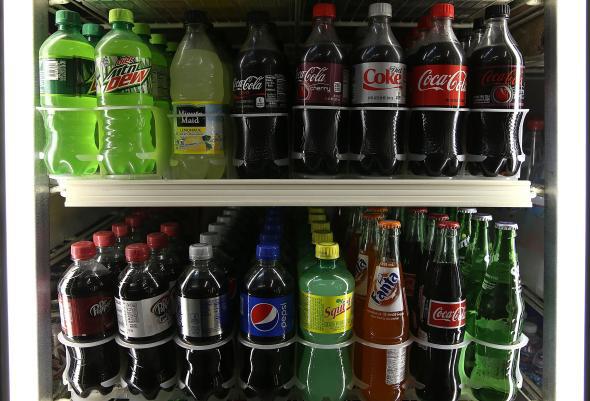The city of Philadelphia on Thursday became the first real, non-Berkeley American city to pass a soda tax, which will add an additional 1.5 cents-per-ounce on thousands of products. Dozens and dozens of soda taxes have been brought before city councils and state legislatures with an eye on improving health by minimizing consumption of various forms of colored sugar water and each has been shot down, with the exception of Berkeley, California, where every can of Mountain Dew purchased requires a full physical and each consumed serving must be registered with a totally nonjudgmental licensed city official.*
Philadelphia Mayor Jim Kenney was able to overcome the usual, strong industry opposition and a near-universal aversion to paying more taxes for something by avoiding framing the plan as a Diet Bloomberg plan aimed at punitively taxing obese, low-income Americans into narrower waistlines and longer lives, and instead putting the tax forward as a means of collective action to fund community institutions, like pre-kindergarten, rec centers, parks, and libraries. The new levy is expected to raise as much at $90 million for the city next year.
Here’s more on what products the tax will cover from the Philadelphia Inquirer:
Philadelphia’s tax will be levied on distributors. Only time will tell how much will trickle down to consumers. But all in, it could add up to 18 cents to the cost of a 12-ounce can, $1 to the cost of a 2-liter container, and $2.16 to the cost of a 12-pack. It will impact sodas, teas, sports drinks, flavored waters, bottled coffees and energy drinks, among other products. Exempt products include baby formula and beverages that are more than 50 percent fresh fruit, fresh vegetables, or milk. Beverages for which customers request sweetener or add it themselves (such as at a coffee shop) are also exempt.
“The tax passed today is a regressive tax that unfairly singles out beverages, including low-and no-calorie choices,” the American Beverage Association said a statement. The trade group spent nearly $5 million on ads trying to defeat the measure that was passed 13-to-4 by the city council. The tax will be imposed starting on Jan. 1.
*Not really.
